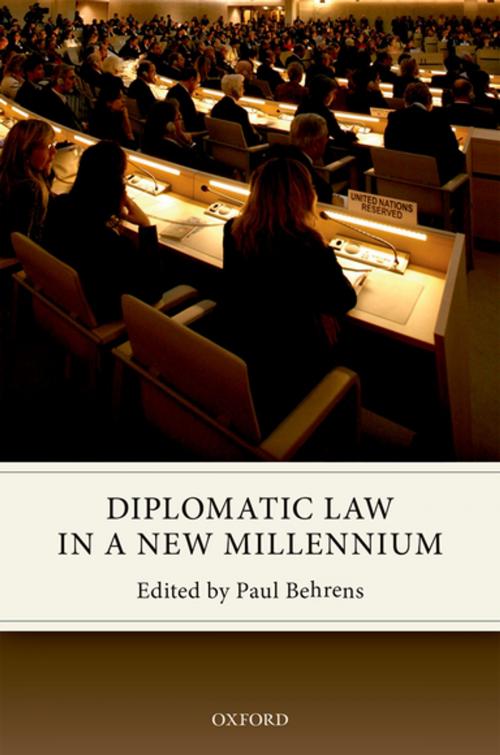Diplomatic Law in a New Millennium
Nonfiction, Reference & Language, Law, International, Social & Cultural Studies, Political Science| Author: | ISBN: | 9780192515674 | |
| Publisher: | OUP Oxford | Publication: | August 4, 2017 |
| Imprint: | OUP Oxford | Language: | English |
| Author: | |
| ISBN: | 9780192515674 |
| Publisher: | OUP Oxford |
| Publication: | August 4, 2017 |
| Imprint: | OUP Oxford |
| Language: | English |
The granting of diplomatic asylum to Julian Assange, the dangers faced by diplomats in troublespots around the world, WikiLeaks and the publication of thousands of embassy cable - situations like these place diplomatic agents and diplomatic law at the very centre of contemporary debate on current affairs. Diplomatic Law in a New Millennium brings together 20 experts to provide insight into some of the most controversial and important matters which characterise modern diplomatic law. They include diplomatic asylum, the treatment (and rights) of domestic staff of diplomatic agents, the inviolability of correspondence, of the diplomatic bag and of the diplomatic mission, the immunity to be given to members of the diplomatic family, diplomatic duties (including the duty of non-interference), but also the rise of diplomatic actors which are not sent by States (including members of the EU diplomatic service). This book explores these matters in a critical, yet accessible manner, and is therefore an invaluable resource for practitioners, scholars and students with an interest in diplomatic relations. The authors of the book include some of the leading authorities on diplomatic law (including a delegate to the 1961 conference which codified modern diplomatic law) as well as serving and former members of the diplomatic corps.
The granting of diplomatic asylum to Julian Assange, the dangers faced by diplomats in troublespots around the world, WikiLeaks and the publication of thousands of embassy cable - situations like these place diplomatic agents and diplomatic law at the very centre of contemporary debate on current affairs. Diplomatic Law in a New Millennium brings together 20 experts to provide insight into some of the most controversial and important matters which characterise modern diplomatic law. They include diplomatic asylum, the treatment (and rights) of domestic staff of diplomatic agents, the inviolability of correspondence, of the diplomatic bag and of the diplomatic mission, the immunity to be given to members of the diplomatic family, diplomatic duties (including the duty of non-interference), but also the rise of diplomatic actors which are not sent by States (including members of the EU diplomatic service). This book explores these matters in a critical, yet accessible manner, and is therefore an invaluable resource for practitioners, scholars and students with an interest in diplomatic relations. The authors of the book include some of the leading authorities on diplomatic law (including a delegate to the 1961 conference which codified modern diplomatic law) as well as serving and former members of the diplomatic corps.















